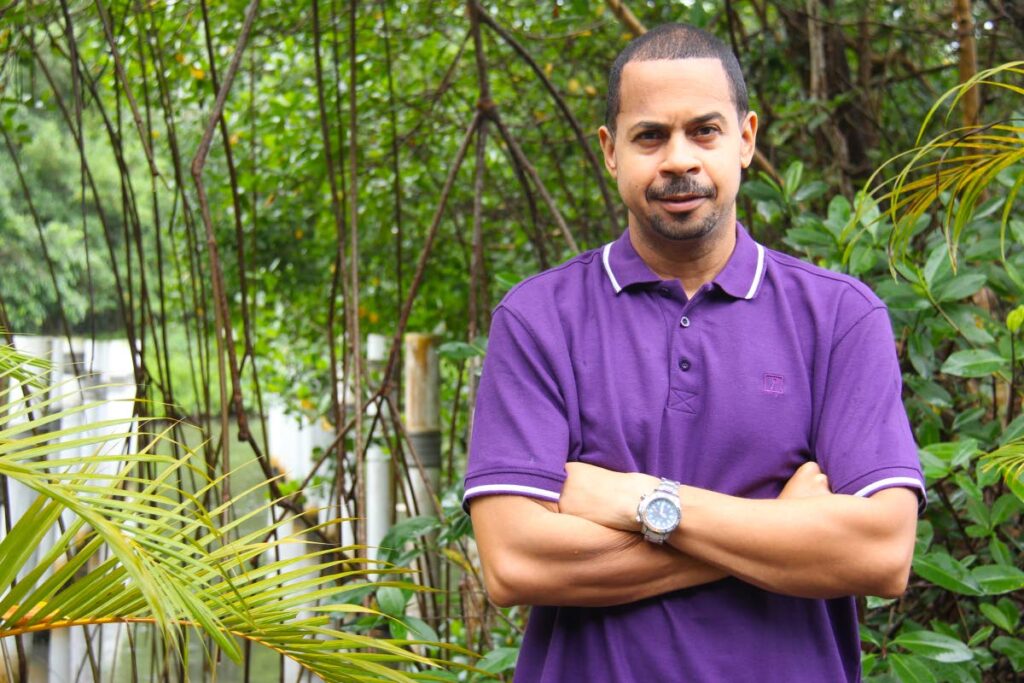Saving Asa Wright

PAOLO KERNAHAN
THE RECENT "reopening" of the beleaguered Asa Wright Nature Centre (AWNC) created some buzz online. As a once-frequent visitor to this jewel in TT's ecotourism crown, it was uplifting to see the green shoots of renewal of a place that, just a few years prior, faced extinction.
Hadco, known primarily as a food and beverage distributorship, swept in to rescue this national treasure.
Well, nothing so altruistic. Hadco was selected by the board at AWNC to be the concessionaire for the eco-lodge, taking the reins of commercial operations. Trustees and the board will retain responsibility for the continuation of scientific inquiry and education in this biodiverse catchment area.
I've always supported, in principle, business investment in ecotourism. People are typically more inclined to protect what benefits them financially, although that wobbly ethos isn't without provisos.
Hadco has made a big gamble on ecotourism, having established Hadco Experiences and also acquiring the Mt Plaisir Hotel at Grande Riviere – a premier leatherback turtle-nesting site.
There's been quite a bit of gasping online about the rates for visits and stays at the upgraded eco-lodge. All I will say about that, for now, is that the domestic and foreign tourism markets will, in short order, tell Hadco what they think about the pricing – for better or worse. We can only hope Hadco has done its homework.
The import distributor is essentially buying into an established brand with a fairly loyal market abroad. However, the pandemic changed not just global tourism, but the way it's marketed.
The rise of the travel content creator is significantly influencing the way travellers choose their "experiences." Hadco will have to get up to speed quickly on understanding how to market its products to a global audience with access to cheaper options.
Traditionally, local tourism businesses leaned heavily on the State to market destination TT; this was always a mistake. Our tourism marketing in all its different, desperately-flawed manifestations never kept pace with industry changes. The same holds true today.
You only need to take a look at Visit Trinidad's Instagram and TikTok channels to get a nauseating sense of where we're at on the destination-marketing front.
Solo travel-content creators on these platforms with smaller budgets than our tourism board are producing epic, cinematic visual narratives that sweep viewers off their feet. The content they're posting has a powerful emotional pull that makes you want to either book a ticket immediately for that destination or dream about it until you can. That's the purpose of good marketing – to kindle a burning desire and push audiences to do something about it.
Much of Visit Trinidad's content marketing is insipid, moribund pap that's more reflective of what we think is special about this place, rather than what will appeal to outsiders.
The shortcomings of the Government's approach to contemporary marketing run far deeper, though. A modest audit of their Instagram and TikTok channels shows they're not savvy about video marketing. For one thing, they don't post regularly enough. To get the best results on those platforms with that kind of content you need to be posting several times per week.
Moreover, they don't understand the kind of content needed to be effective with short-form video marketing. Such videos are shot and edited with an energy and pace reflecting the dynamics of the platforms.
Additionally, content on these social media platforms must be optimised for discovery. In countless posts I looked at on Visit Trinidad's TikTok and Instagram feeds there were few trending sounds (lots of discordant steelpan), a lack of diversity in the content, and mainly one-line video descriptions with no keywords.
This is a fatal error, because keyword-infused video descriptions are what tell the platform algorithms what the content is about and to whom it should be shown. There's little point in posting content to be shown to and consumed mainly by Trinis. And finally, the hashtags on their posts are beyond useless.
So Hadco is going to have to assume greater responsibility for the marketing of its tourism product; the cavalry isn't coming. Hadco will need to be aggressive and strategic in its marketing to find new clients and adapt the local product in a highly competitive global environment.
It's important to note that Asa Wright's troubles didn't start during the pandemic. The eco-lodge endured prolonged dry spells that were owed, in no small measure, to questionable management of the business side of AWNC.
I sincerely wish the folks at Hadco well. They've stepped up to invest in ecotourism in ways the local business community typically avoids. As an import distributor, Hadco is making a foray into the "bush," but it's not quite out of the woods yet.

Comments
"Saving Asa Wright"